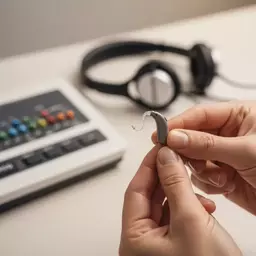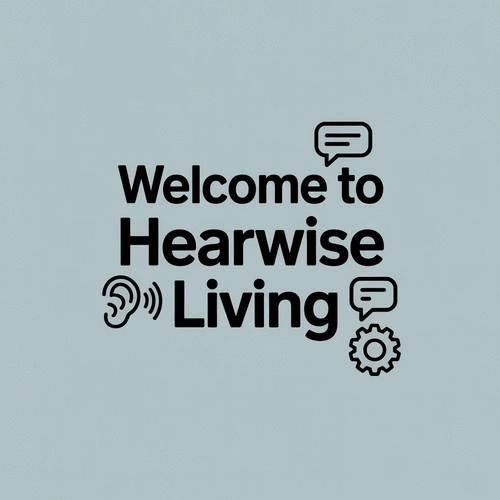Understanding hearing loss is crucial for anyone experiencing it or supporting someone who does. This knowledge not only helps in addressing the stigma around this condition but also opens the door to effective coping strategies and support systems. Here’s what you’ll take away from this article.
What You Will Learn
- Hearing loss can manifest in various forms such as conductive, sensorineural, and mixed types, each with different implications for treatment.
- Daily challenges from hearing loss include difficulty in conversations, increased fatigue, and social withdrawal, impacting emotional well-being.
- Common causes of hearing loss include aging, noise exposure, infections, and certain medications, many of which are preventable or manageable.
- Support groups provide emotional relief, practical strategies, and community connections, which are vital for coping with hearing loss.
- Coping mechanisms such as mindfulness, physical activity, and assistive devices can enhance quality of life for those affected by hearing loss.
- Taking proactive steps to seek support, whether through local groups or online resources, is crucial in navigating the journey of hearing loss.
Understanding Different Types of Hearing Loss
This visual categorizes the three main types of hearing loss and their causes, as identified by the World Health Organization.
Conductive Hearing Loss
Caused by blockages or damage in the outer or middle ear.
- Ear infections
- Fluid in the middle ear
- Perforated eardrum
Sensorineural Hearing Loss
Results from damage to the inner ear or auditory nerve.
- Aging (Presbycusis)
- Noise exposure
- Genetic factors
Mixed Hearing Loss
A combination of both conductive and sensorineural hearing loss.
- Impacted earwax with inner ear damage
- Head trauma affecting both parts of the ear
Common Causes & Implications
Factors leading to hearing loss and their effects:
- Aging: Presbycusis, affecting older adults.
- Noise Exposure: Permanent damage from loud sounds.
- Ototoxic Medications: Hearing loss as a side effect.
Understanding Hearing Loss and Its Impacts
Navigating the world of hearing loss can be daunting, but understanding its implications is the first step towards taking action. Hearing loss is more than just a clinical diagnosis; it encompasses a spectrum of experiences that affect communication, relationships, and overall well-being. Let's explore what hearing loss really means, how it impacts our daily lives, and the common causes behind it. For those interested in the latest advancements, you might find our article on hearing aid innovations for 2025 particularly insightful.

What is Hearing Loss?
Hearing loss refers to a partial or total inability to hear sounds in one or both ears. This condition can manifest in various forms, ranging from mild to profound loss. The World Health Organization identifies hearing loss as a major public health issue, affecting millions globally. It's essential to recognize that hearing loss can be both temporary and permanent, depending on the underlying cause.
- Conductive Hearing Loss: Often caused by blockages or damage in the outer or middle ear.
- Sensorineural Hearing Loss: Results from damage to the inner ear or auditory nerve.
- Mixed Hearing Loss: A combination of both conductive and sensorineural hearing loss.
Each type of hearing loss comes with its own set of challenges and may require different approaches to treatment or management.
How Hearing Loss Affects Daily Life
Experiencing hearing loss can profoundly impact one's day-to-day activities. Simple tasks, such as enjoying a conversation with friends or watching a movie, can become frustrating. Without effective communication, feelings of isolation may creep in. Many individuals report the following challenges:
- Difficulty following conversations, especially in crowded settings.
- Increased fatigue from straining to hear.
- Social withdrawal due to embarrassing misunderstandings.
At HearWise Living, we understand that each person's journey with hearing loss is unique. Our goal is to provide you with resources and support to help reclaim your confidence and maintain connections with loved ones. Furthermore, understanding how to enhance home communication with hearing loss can significantly improve daily interactions.
Common Causes of Hearing Loss and Their Implications
Hearing loss can result from various factors, some of which are preventable. Understanding these causes can empower individuals to take proactive steps. Here are some common culprits:
- Aging: Presbycusis is age-related hearing loss that typically affects older adults.
- Noise Exposure: Prolonged exposure to loud sounds can lead to permanent damage to the hearing structures.
- Infections: Conditions like ear infections or meningitis can cause temporary or permanent hearing loss.
- Ototoxic Medications: Certain medications can negatively impact hearing as a side effect.
Recognizing these causes is crucial, as early intervention can mitigate further damage and enhance the quality of life. At HearWise Living, we believe in empowering you with knowledge to navigate your hearing health journey effectively!
Did You Know?
According to the World Health Organization, over 1.5 billion people worldwide experience some form of hearing loss. This statistic highlights the importance of awareness and support for individuals navigating this journey.
Emotional and Psychological Benefits of Support
Dealing with hearing loss can trigger a range of emotions, from frustration to isolation. It's essential to acknowledge these feelings and find effective coping mechanisms. Support groups, in particular, provide a safe space where individuals can share their experiences and feel understood. Connecting with others who face similar challenges can be incredibly empowering, offering emotional relief and practical strategies to navigate daily life.
In my own journey with audiology, I've seen firsthand the profound impact of emotional support on individuals. For many, attending a support group isn't just about discussing hearing loss; it's about building a community that fosters resilience and hope. By participating, you can learn valuable coping strategies and also contribute your insights, making the experience mutually beneficial.

Coping Mechanisms for Individuals Facing Hearing Loss
Implementing effective coping mechanisms is crucial for managing the emotional toll of hearing loss. Here are some strategies that individuals have found helpful:
- Practice mindfulness and meditation to reduce anxiety.
- Engage in regular physical activity to boost mood and overall wellness.
- Explore assistive listening devices to enhance communication and reduce frustration.
- Join community activities to foster social connections and reduce feelings of isolation.
These coping strategies not only help manage the emotional aspects but also improve overall well-being. By incorporating them into your daily routine, you can create a more fulfilling life that embraces connection and joy. For more on building inner strength, consider reading about building resilience with hearing loss.
Testimonials from Support Group Members
Hearing from others who have experienced the benefits of support groups can be inspiring. Here are a few testimonials that highlight the transformative power of joining a supportive community:
- John: "Joining the support group was a turning point for me. I no longer feel alone in my struggles, and I've learned so much from others' experiences."
- Sarah: "The emotional support I received helped me cope with my hearing loss. It’s comforting to know that I’m not the only one facing these challenges."
- Michael: "The laughter and camaraderie in our group have made a significant difference. We share tips and stories, and it feels like a family."
These stories illustrate how powerful community can be in overcoming the challenges associated with hearing loss. It’s validation that you’re not alone, and there’s a whole network of individuals ready to support you.
Workshops on Coping with Hearing Loss and Communication Strategies
Many support groups offer workshops focused on coping with hearing loss and enhancing communication skills. These workshops can provide a wealth of information and practical techniques, such as:
- Role-playing conversations to practice real-life scenarios.
- Learning about the latest communication technologies.
- Strategies to engage family members in effective conversations.
- Mindfulness practices to help reduce anxiety during social interactions.
By participating in these workshops, you not only gain valuable skills but also form deeper connections with fellow participants. It’s a proactive step towards embracing your hearing journey and enhancing your quality of life.
FAQs About Hearing Loss and Support
Q: What are the main types of hearing loss?
A: The three main types are conductive (outer/middle ear issues), sensorineural (inner ear/auditory nerve damage), and mixed (a combination of both).
Q: How does hearing loss impact daily life?
A: It can cause difficulty in conversations, increased fatigue from straining to hear, and social withdrawal due to misunderstandings.
Q: What are common causes of hearing loss?
A: Common causes include aging (Presbycusis), noise exposure, infections (like ear infections or meningitis), and ototoxic medications.
Q: What are the benefits of joining a support group for hearing loss?
A: Support groups offer emotional relief, practical strategies for daily life, a sense of community, and resources for coping and communication.
Q: What coping mechanisms are effective for individuals with hearing loss?
A: Useful strategies include mindfulness, regular physical activity, using assistive listening devices, and engaging in community activities to foster social connections.
Q: How can I find local support for hearing loss?
A: You can search online for local groups, contact audiologists or clinics for recommendations, visit community centers, or explore resources from organizations like the Hearing Loss Association of America (HLAA).
Getting Started: Next Steps for Seeking Help
If you're feeling ready to seek support, knowing where to start can make the journey less daunting. Here are some practical steps to guide you in connecting with local groups and professionals:
How to Reach Out and Connect with Local Groups
- Search online for local support groups focused on hearing loss.
- Contact audiologists or hearing clinics in your area for recommendations.
- Visit community centers or libraries to inquire about upcoming meetings.
- Consider reaching out to the Hearing Loss Association of America (HLAA) for resources.
Taking this initiative can be a significant step toward building a support network that uplifts and encourages you!
Encouragement to Seek Support and Counseling Services
I want to encourage you to reach out for support—whether it's joining a group or seeking professional counseling. It's a sign of strength to recognize when you need help, and doing so can lead to a more fulfilling life despite hearing challenges. Remember, you don’t have to navigate this journey alone!
Exploring Online Directories for Counselors and Support Services
In today's digital age, finding support services online has never been easier. Here’s how you can utilize online directories:
- Visit websites like Psychology Today to find specialized counselors in your area.
- Use platforms like Meetup to discover local groups or events focused on hearing loss.
- Check social media platforms for virtual support groups or forums.
- Explore the HLAA website for an extensive list of resources.
These online tools can be incredibly helpful in connecting you with the right resources to support your hearing journey. Embrace the opportunity to reach out and find the support that resonates with you! You may also find our insights on the AI's role in audiology care to be a valuable resource for future advancements.
Recap of Key Points
Here is a quick recap of the important points discussed in the article:
- Understanding Hearing Loss: Hearing loss can be temporary or permanent and can significantly impact communication and relationships.
- Types of Hearing Loss: The main types include conductive, sensorineural, and mixed hearing loss, each requiring different management approaches.
- Daily Life Impact: Hearing loss can cause challenges in conversations, increase fatigue, and lead to social withdrawal.
- Common Causes: Aging, noise exposure, infections, and ototoxic medications are key factors contributing to hearing loss.
- Emotional Support: Joining support groups can provide emotional relief and practical coping strategies for those experiencing hearing loss.
- Coping Mechanisms: Mindfulness, physical activity, assistive listening devices, and community engagement are effective strategies to manage hearing loss.
- Next Steps for Seeking Help: Reach out to local support groups, audiologists, and online resources to find help and build a supportive network.








